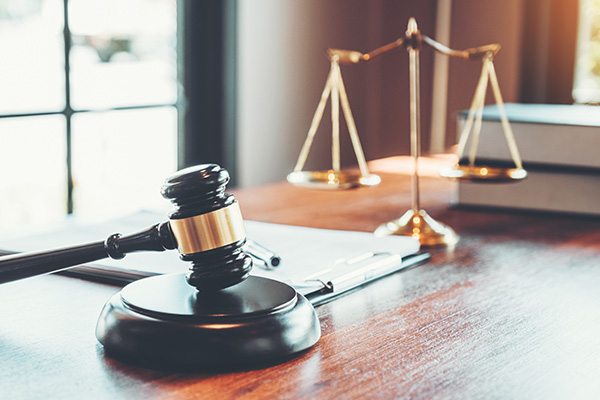Resources
Legal Resources

Legal Resources for Judges, Lawyers, DV Advocates, Custody Evaluators and Mediators
- https://www.ncjfcj.org/family-violence-and-domestic-relations/ The NCJFCJ has advanced social change in courts and communities nationwide by providing robust training, technical assistance, and policy development on issues related to the effects of abuse across a person’s lifespan.
- https://judicialengagementnetwork.org The Judicial Engagement Network (JEN) is a national community of engaged judges and judicial officers leading efforts to improve community responses and judicial and court practices to domestic and dating violence, sexual assault, and stalking.
- https://www.ncjfcj.org/publications/model-code-on-domestic-and-family-violence/ The NCJFCJ promulgated the Model Code on Domestic and Family Violence (Model Code) to promote consistency across state lines in how domestic violence is handled in the criminal and civil legal systems.
- https://njidv.org Formed in 1998, the National Judicial Institute on Domestic Violence is a dynamic partnership between Futures Without Violence and the National Council of Juvenile and Family Court Judges with support from the U.S. Department of Justice Office on Violence Against Women. Since 1999, the NJIDV has provided highly interactive, skills-based domestic violence workshops for judges and judicial officers nationwide.
- https://www.vawaandcourts.org Over the past two decades courts have grown their leadership and institutional capacities to respond more effectively to domestic violence, dating violence, sexual assault, and stalking. VAWA and the Courts is a partnership of the National Center for State Courts and the Conference of State Court Administrators created to support courts in their continued efforts to ensure access to legal remedies and protections for victims and to strengthen the courts’ collaborative role in enhancing community safety.
- https://documenttheabuse.com/evidentiary-abuse-affidavit/eaa The Evidentiary Abuse Affidavit (EAA) is the mastermind process of violence expert Susan Murphy Milano. The EAA combines videotaping (of a victim’s actual words attesting to the abuse) and creative witnessed and notarized legal documents that successfully satisfy the legal hurdles often faced in these cases. The unique packaging of testimony, documentation, perpetrator historical profiling, and pre-collected evidence delivered to established safe and legal persons, wrap this delicate issue up for successful prosecution.
- https://documenttheabuse.com/training Any person who is likely to have contact with victims of domestic violence and the desire to be a point-of-contact for life saving documentation can be trained.
- Law Enforcement
- Victim Advocates
- Attorneys and Para Legals
- Therapists
- Domestic Violence Agencies
- Women’s Organizations
- Social Service workers
- Emergency Room Personnel
- Public Health Nurses
- 911 Responders
- Jails
- Court Personnel
- Prosecutors/State Agencies
- Private Physicians
- Clergy/Religious Organizations
- Resource Center on Domestic Violence, Child Protection, and Custody: 800-527-3223; www.rcdvcpc.org/ – Provides resources on these important topics to judges, domestic violence advocates, and the public.
- https://familylawyermagazine.com/domestic-violence-what-all-family-lawyers-should-know/ What All Family Lawyers Should Know About Domestic Violence: Domestic violence experts offer family lawyers 5 approaches to take to really help families where there have been domestic violence allegations
- https://familylawyermagazine.com/separation-agreements-should-not-gag-abuse-allegations/ Separation Agreements Shouldn’t Gag Abuse Allegations: Separation agreements that include confidentiality clauses and gag orders should not be enforceable by family law courts. Here’s why.
- https://www.americanbar.org/groups/domestic_violence/Initiatives/ American Bar Association Commission on Domestic & Sexual Violence Initiatives & Resources.
- https://www.americanbar.org/groups/domestic_violence/Initiatives/publications/ The ABA Commission on Domestic & Sexual Violence produces a wide array of publications to assist attorneys representing victims of domestic and sexual violence.
- https://www.americanbar.org/groups/domestic_violence/Initiatives/Pleadings_database/ Pleadings Database – We have developed this database of pleadings and other documents to serve as a resource for attorneys representing survivors of domestic and sexual violence in family law matters.
- https://www.americanbar.org/groups/domestic_violence/our-projects/hague-dvproject/ The Hague Domestic Violence Project was formed to help battered mothers, attorneys, judges, and advocates incorporate child exposure to domestic violence as a defense to prevent the otherwise required return of the child to her or his home country, and to a potentially abusive parent.
- https://themendproject.com/mutual-abuse/ The phrase “mutual abuse” is deceptive and inaccurately describes any form of emotional or physical relationship abuse. Professionals who are experts in the field of domestic violence agree there is no such thing as mutual abuse. It doesn’t exist.
- https://themendproject.com/reactive-abuse/ Reactive abuse occurs when the victim becomes the aggressor against the abuser, such as by pushing, punching, kicking, hair pulling, raging, or angry outbursts of aggressive verbal attacks. Reactive abuse is self-defense, not abuse. This happens when the victim, who has been dealing with abusive behavior over a sustained period of time, reaches an internal breaking point. The prolonged physical or emotional abuse they have endured makes them lash out defensively in a hostile manner. A victim who reacts abusively is usually acting out of character, leaving them confused and surprised by their response. Even though it comes out of the body’s natural defense mechanism, which is designed to protect them from violence, reactive abuse almost always harms the victim more than the abuser